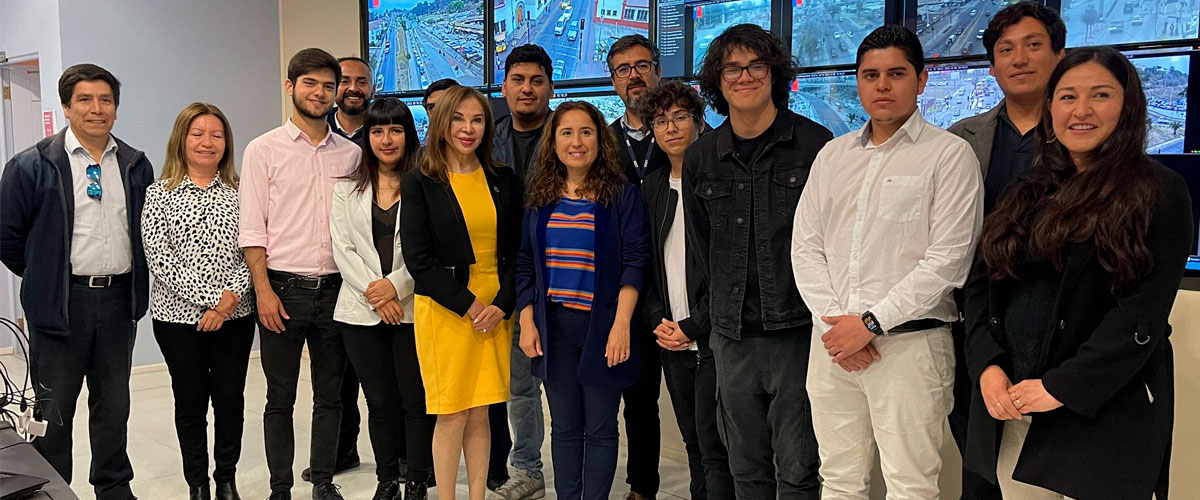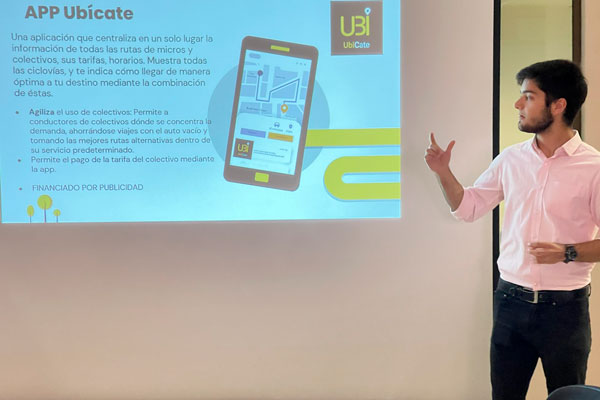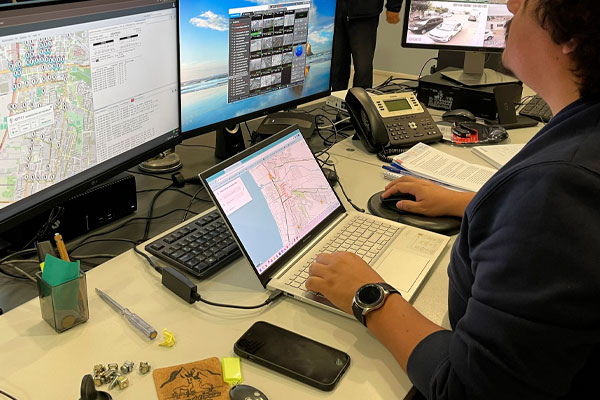- News
Application to optimize public transport transfers wins first place in the Hackathon

The students presented initiatives related to technological solutions for road safety, congestion and to establish improvements to the operation of public transportation. This Hackathon brought together a total of 36 students from various careers and higher education institutions from La Serena, Coquimbo and Ovalle.
During November 30 and December 1, the “Hackathon 2023 sustainability and movement: Challenge the limits for your city” was held at the Technology Center of the Faculty of Engineering of the University of La Serena, an activity whose purpose was foster innovation and technological development to address critical challenges related to mobility in the Coquimbo region.
The activity organized by the regional Traffic Control Operational Unit in conjunction with the Smart Cities Unit of the Ministry of Transportation, the University of La Serena, the SeremiTT of Coquimbo, CORFO and the Regional Corporation for Productive Development, in collaboration with the Community Coquimbo Port Logistics.
This Hackathon brought together a total of 36 students from the Engineering, Architecture, Design, Transportation, Technology and Computer Science majors from the Universities of La Serena, Católica del Norte, Del Alba, Central, INACAP and CFT Santo Tomás de Ovalle.
In relation to road congestion, the students presented a proposal associated with delivering information through mobile applications that allow improvements in public transportation (major and minor), intended for users as operators. A form of electronic payment for minor public transportation was presented as an initiative, in order to reduce the probability of robberies and assaults on drivers and passengers. In terms of road safety, an incident detection system with Artificial Intelligence (AI) was proposed, which delivers alerts and recommendations to the control center operator to program traffic lights in the event of contingencies.
The winners were the students of the Central University, who designed the UBÍcate application, an initiative that centralizes in one place the information on all bus and bus routes, their fares, and schedules. Shows the available cycle paths, and indicates how to optimally reach your destination by combining them. This project will be advised by CORFO, so that it can be financed and implemented through the Brújula Cowork, in an 8-month consultancy valued at $2 million pesos.
“We are in the Traffic Control Operational Unit closing what was the first Hackathon open to the different universities and institutes in our region. We were developing projects with mobility challenges and we had a winner, the students of the Central University with UBÍcate. The truth is that it has been a very good experience, we see how the students generate proposals for the problems we have in our conurbation,” said the Seremi of Transport and Telecommunications, Alejandra Maureira.
“For us as the University of La Serena it is very important to go out into our territory, see the real needs of the community. Within our university we carry out and create innovation, and together with the Seremi de Transportes and other relevant actors, we have invited students from different institutions to participate in this Hackathon that will allow the development of innovative initiatives that seek to improve people's quality of life. We have seen very innovative projects that are really going to be viable that allow better traffic and people to move better in a city that grows and develops,” said the Rector of the ULS, Dr. Luperfina Rojas.
The Ministry of Transport and Telecommunications (MTT) is positioned as a key facilitator in this initiative, aspiring to establish a close connection with the local ecosystem. Its objective is to act as a catalyst and promoter of collaboration between students, the academic sector, industry and other relevant entities in the Coquimbo region. As articulators of this ecosystem activation, the MTT seeks to create synergies that drive the development of innovative and sustainable solutions for specific mobility challenges in the region.
The Hackathon represents a strategy to involve youth in solving mobility problems, while the linking of the MTT with the ecosystem aims to be a facilitator that promotes connection and collaboration between various actors. This is done with the aim of achieving significant and lasting activation in the field of mobility in the region.
“Locate yourself. What you have to do is report all the public transport routes for buses and buses, in addition to the city's bike lanes, and they will show you where the frequent points are so that the buses can pick up more people in less time. It also allows QR payment through the application in buses. It is very important, because we manage to promote an idea in a short term and work as a team to carry out real solutions for the commune,” added Christopher Ferazzoli, a student on the winning team from the Central University.


